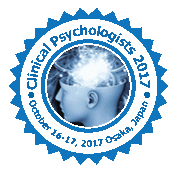
Farah Malik, PhD
Institute of Applied Psychology University of the Punjab, Lahore
Title: Family Environment, Peer Relations, Self-Regulation and Positive Youth Development (PYD)
Biography
Biography: Farah Malik, PhD
Abstract
Statement of the Problem: the study investigated family environment, peer relations and positive development in youth taking self-regulation as a mediator. It was hypothesized that effective family environment, good peer relations, self-regulation would be positively related to positive development in youth. Further, self-regulation would mediate the relationship between family environment, peer relations, and PYD. Methodology & Theoretical Orientation: It was a correlational study with special focus on youth that considered best comprehended as a time of transition from childhood reliance to freedom of adulthood (Kail & Cavanaugh, 2016). The clinicians and researchers, both agree based their speculations and theories on a very basic supposition that youth are integrally prone to behave in uncivilized and unsafe ways that is not true as many facots play role in their positive development. A sample of the study consisted of 344 young individuals was drawn with age of 14-24 years. Measures included Self-report Family Inventory (Beavers & Hampson, 2000), Peer Relations Scale (Petersen, Schulenberg, Abramowitz, Offer, & Jarcho, 1984), Short Self-regulation Questionnaire (Carey, Neal, & Collins, 2004), and Positive Youth Development Inventory (Arnold, Nott, & Meinhold, 2012). Findings: Results showed significantly positive relationship with family environment with good peer relations, self-regulation, and PYD. The peer relations were positively correlated with self-regulation and PYD. Mediation Analysis using SEM revealed that self-regulation was a significant mediator between family environment and PYD and it also mediated the relationship between peer relations and PYD in presence of control variables. Conclusion & Significance: Conclusively, a proficient family environment was significantly related with good peer relations and self-regulation and positive youth development; also with PYD domains of competence, confidence, character, care, connection, and contribution. Moreover, good peer relations were key elements for self-regulation and PYD in youth. The results were discussed in Pakistani socio-cultural context.

